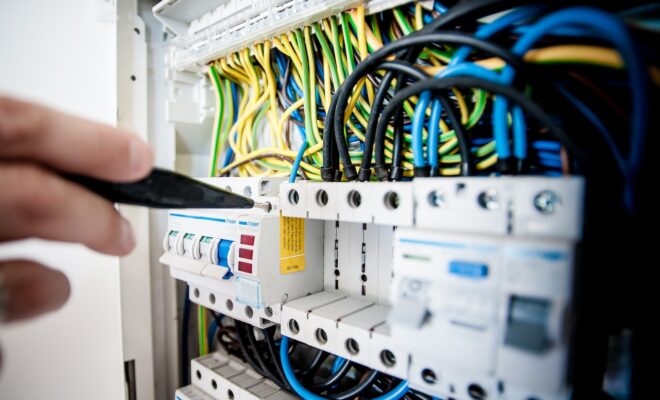
4 Easy Ways To Manage Electrical Hazards At Home
Although many of us are used to the convenience offered by electricity, it’s important not to forget that electrical hazards can also pose a threat to our safety. While you might not think too much about what goes on in the wires of your home, electrical hazards are still present. This means that you should familiarise yourself with the most common electrical hazards in your home and learn how to avoid them. Electrical safety precautions are crucial to reduce the risk of fire or electrical shock in your property. Today we will take a closer look at some of the ways you can avoid these dangers in your home and find out what you can do to successfully manage electrical hazards.
Keep Electrical Equipment Away From Water
Electrical appliances should always be kept away from water and moisture. Also, power tools shouldn’t be used in wet conditions, if you are doing any work outside. This is because mixing electricity and water can result in electrocution. If you ever drop any type of electrical equipment into water, you should go to your property’s panel and shut off the power supply. You shouldn’t attempt to unplug the appliance or retrieve it before you do this. Once it has dried out, it’s strongly recommended to have it checked by a qualified technician to ensure that it is still safe to use.
Get An Electrical Safety Certificate
It’s crucial to ensure that your property is safe and all electrical systems are running efficiently. Trade Facilities Services provide electrical testing, which can help you obtain an Electrical Safety Certificate. They offer electrical compliance services, which ensure that your property is within government guidance. A comprehensive review will be conducted by the fully equipped electricians at Trade Facilities Services so that you are fully aware of any remedial work that may be required. Upon completion, an Electrical Safety Certificate will indicate whether your property has passed or failed the inspection.
Unplug Appliances When Not In Use
Another important step that many of us know, but may often forget about, is unplugging appliances when they are not in use. Not only will this reduce electrical consumption, which will help the environment, but it can also help you avoid overheating the sockets. Overloading your plug sockets can potentially destroy the electrical system of the entire property or lead to a fire. The danger of appliances often occurs when they malfunction while still being plugged in. Therefore, be sure to unplug any devices with a standby mode like computers or those with a remote control like televisions, as well other appliances like toasters, microwaves, and food processors.
Follow Electrical Instructions
Every device has an appliance manual, which outlines its correct use. This means that you shouldn’t ignore these instructions. For example, if you are setting up a toy for your kid, it’s important to read the instructions carefully and follow them step by step. As a result, you can prevent potential dangers from occurring. In addition, you should always use appropriate wattages for lamps and lighting devices. It may also be a good idea to consider LED bulbs, which are a great energy-saving option.


You must be logged in to post a comment Login